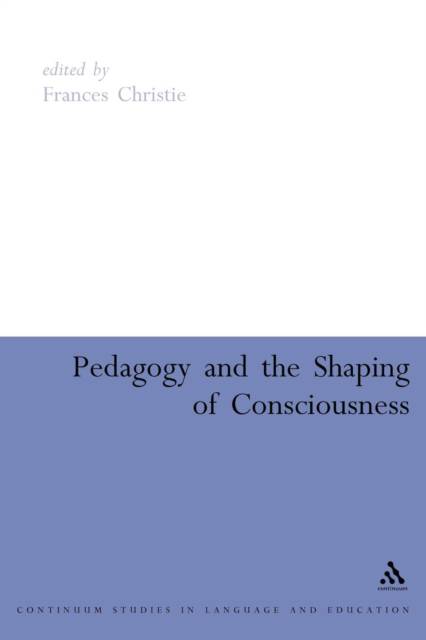
Bedankt voor het vertrouwen het afgelopen jaar! Om jou te bedanken bieden we GRATIS verzending (in België) aan op alles gedurende de hele maand januari.
- Afhalen na 1 uur in een winkel met voorraad
- In januari gratis thuislevering in België
- Ruim aanbod met 7 miljoen producten
Bedankt voor het vertrouwen het afgelopen jaar! Om jou te bedanken bieden we GRATIS verzending (in België) aan op alles gedurende de hele maand januari.
- Afhalen na 1 uur in een winkel met voorraad
- In januari gratis thuislevering in België
- Ruim aanbod met 7 miljoen producten
Zoeken
€ 127,45
+ 254 punten
Omschrijving
Basil Bernstein began to develop his theory of social structure and power relations during the 1950s and 1960s. Early in the 1960s he met M. A. K. Halliday and Ruqaiya Hasan, who were developing the first formulations of what would become known as systemic functional (SF) linguistic theory. A far-reaching dialogue began. Bernstein recognized the significant role that language plays in the construction of social experience and social inequality. Halliday and Hasan were actively seeking a theory of language that would explain the nature of the social. In different ways, they acknowledged the powerful role of language in the social construction of experience. Their resulting enquiries brought both theories and scholars into dialogue. Contributors to this volume (including Hasan and Bernstein) continue this dialogue in a range of papers that draw on both SF linguistic theory (with special reference to genre) and Bernstein's sociological theory, particularly with reference to his later work on pedagogic device and pedagogic discourse. Several authors describe the influence of these theories on classroom practice, including English and mathematics, and literacy teaching in indigenous schools. Pedagogy and the Shaping of Consciousness is an important contribution to the explication of the two theories, the dialogue which they continue to provoke, and their contribution to the provision of more equal access to education.
Specificaties
Betrokkenen
- Auteur(s):
- Uitgeverij:
Inhoud
- Aantal bladzijden:
- 296
- Taal:
- Engels
- Reeks:
Eigenschappen
- Productcode (EAN):
- 9780826478702
- Verschijningsdatum:
- 17/11/2005
- Uitvoering:
- Paperback
- Formaat:
- Trade paperback (VS)
- Afmetingen:
- 160 mm x 232 mm
- Gewicht:
- 566 g

Alleen bij Standaard Boekhandel
+ 254 punten op je klantenkaart van Standaard Boekhandel
Beoordelingen
We publiceren alleen reviews die voldoen aan de voorwaarden voor reviews. Bekijk onze voorwaarden voor reviews.









